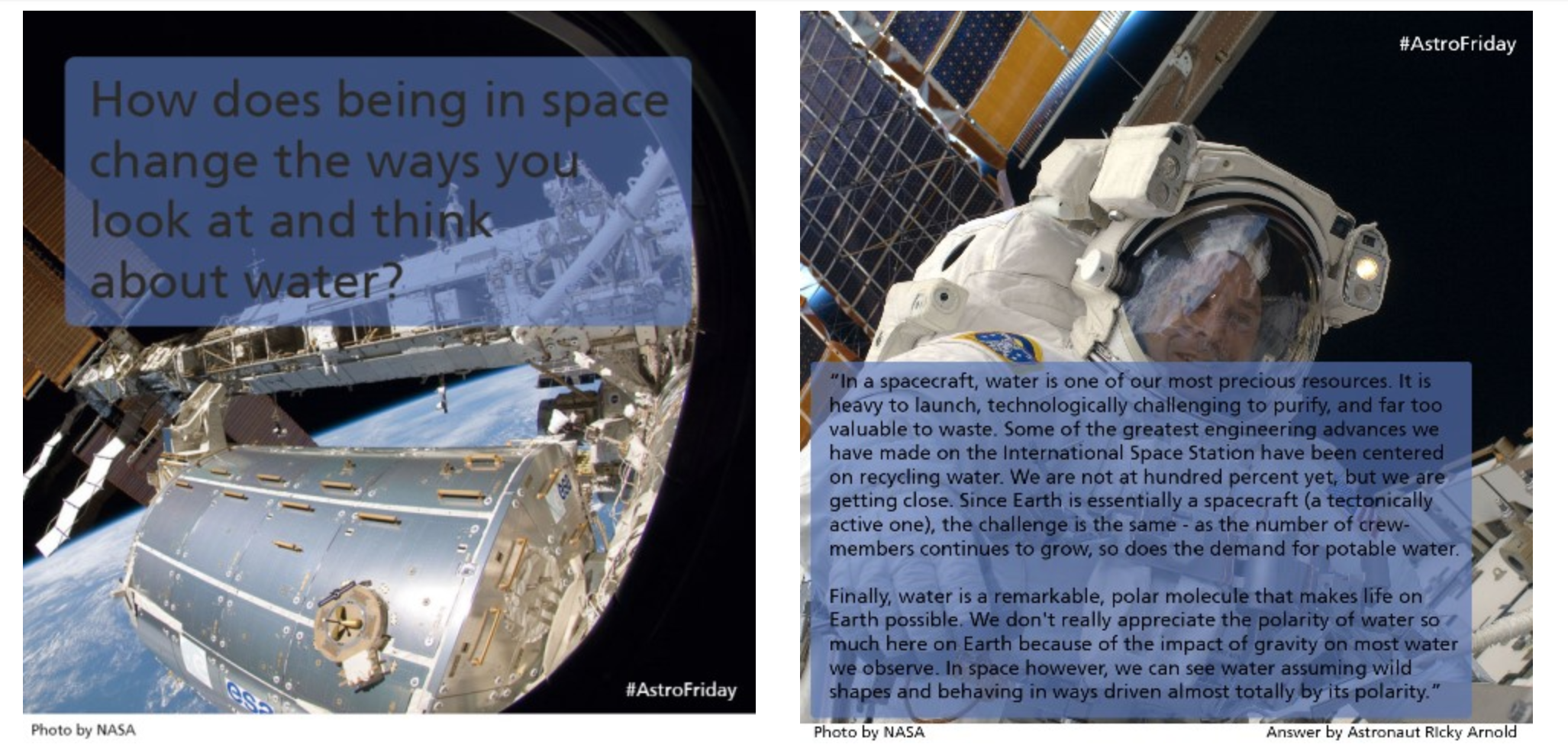Previous Articles
Drinking Water Week—May 6-12, 2018
May 01, 2018
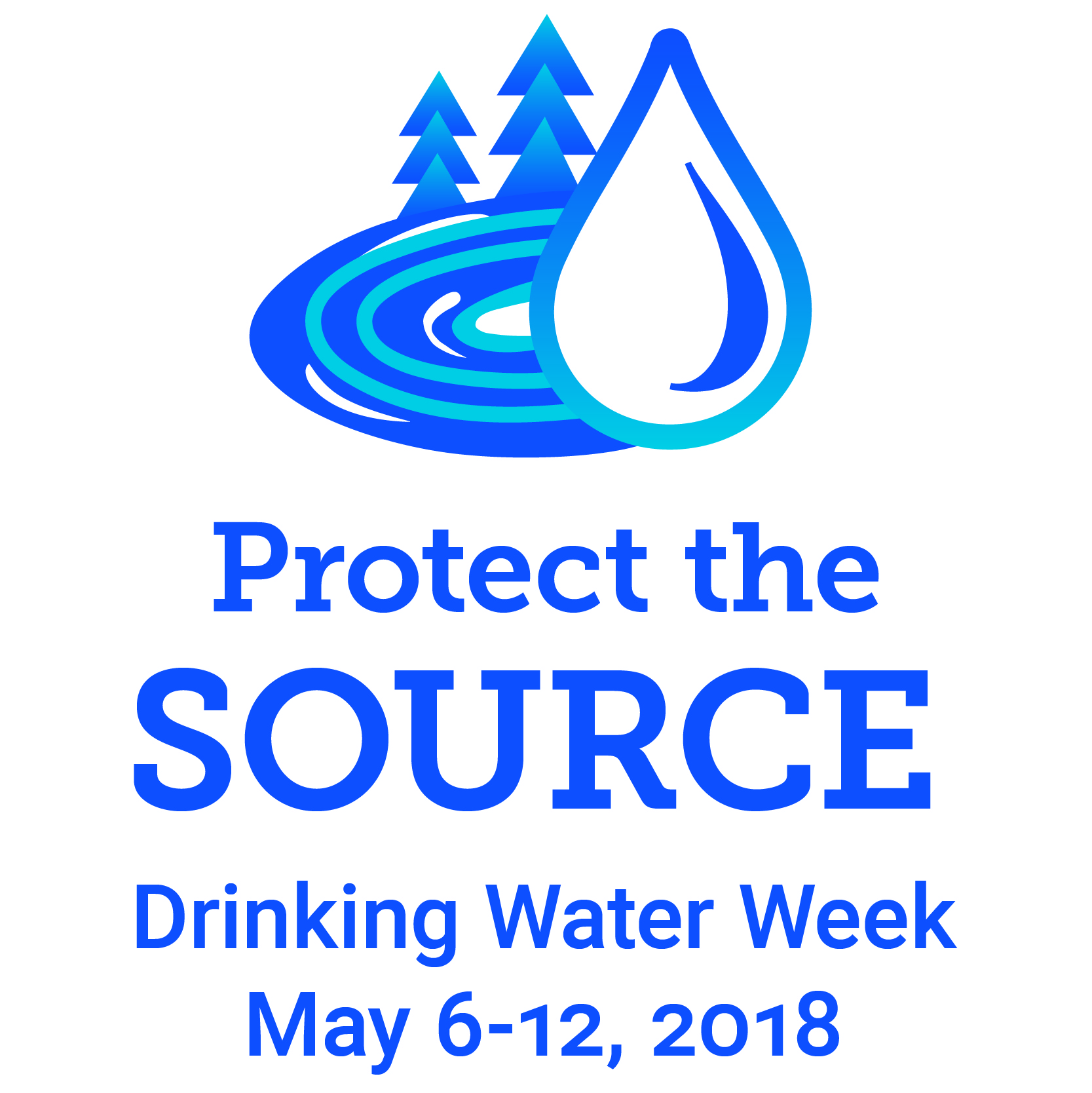
Did you know that May 6-12, is Drinking Water Week? A week to celebrate WATER! May 6 kicks off this year’s Drinking Water Week with an invitation to “Protect the Source." "The American Water Works Association and the water community across North America will celebrate Drinking Water Week by recognizing the vital role drinking water plays in our daily lives, and how we can take personal responsibility in caring for our tap water and protecting it at its source. “When we get to know our local drinking water sources, we come to understand that it is our duty as consumers and community stewards to protect and preserve them,” said AWWA Chief Executive Officer David LaFrance. “Drinking Water Week provides a great opportunity to learn the various ways in which we can each protect our source water so it’s available for future generations.” AWWA
So, how can you "Protect the Source?"
Water consumers can practice conservation by using water wisely at home through the following steps, which are available on DrinkTap.org:
• Repair leaky faucets, indoors and out.
• Fill your sink or basin when washing and rinsing dishes.
• Only run the dishwasher and washing machine when they are full.
• Take short showers instead of baths.
• Turn off the water to brush teeth, shave and soap up in the shower. Fill the sink to shave.
• Repair leaky toilets. Add 12 drops of food coloring into the tank, and if color appears in the bowl one hour later, the toilet is leaking.
• Install a toilet dam, faucet aerators and low-flow showerheads.
• Apply mulch around shrubs and flower beds to reduce evaporation, promote plant growth and control weeds.
• Collect rainfall for irrigation in a screened container (to prevent mosquito larvae growth).
• Always use a broom to clean walkways, driveways, decks and porches, rather than hosing off these areas.
“Safeguarding water by using it wisely is everyone’s responsibility,” said AWWA Chief Executive Officer David LaFrance. “Conserving water at home means we’re saving our precious water supplies and, in the long run, protecting our source water, too.” AWWA
Drinking Water Week’s theme is exactly right:
Protect & Preserve this Precious Resource!
Want to learn more?
Read your Water Quality Report. Local utilities provide Consumer Confidence Reports (CCR) to their customers annually.
You can read our most recent water quality report (CCR) HERE.
Check out this great video from the American Water Corp: Water & You: The Value of Water Service
Sources & other Helpful Resources:
CDC, Drinking Water Week
American Water Works, Drinking Water Week
EPA, Water You Waiting For?
Drinktap.org
Amwatercorp, Water and You
Oregon Health Authority
Educating our Children about Water
April 01, 2018
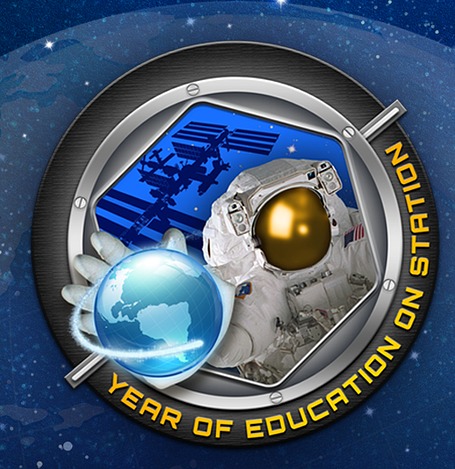
Valuing and protecting our natural resources is more than just a nice idea; it’s a global necessity. And one crucial way of ensuring a future in which every child has clean water to drink is by teaching those children to conserve and care for our resources— right now. The folks at Project WET (Water Education for Teachers) are committed to doing exactly that. They “envision a world in which action-oriented education enables every child to understand and value water, ensuring a sustainable future.” Project WET is working hard to “develop and deliver the world's best water education resources, organize special water events, manage a worldwide network of local implementing partners and advocate for the role of water education in solving the world's most pressing water issues.” Project WET

Project WET has educational materials and teaching tools, such as activity booklets like this one “Water, Agriculture, and Food.”
Project WET’s discoverwater.org site has interactive activities and games for children to learn about water and our world, activities such as these:
The Water Cycle
Use Water Wisely. . . and many more!
The Clean and Conserve Education Program has downloads, booklets, online training modules and education materials to teach people all over the world to conserve water and help make the world a healthier place.
Another organization seeking to teach our children about water and our world, as well as science and space, is the National Aeronautics and Space Administration.
“This year, NASA is celebrating a Year of Education on the Station as astronauts and former teachers Joe Acaba and Ricky Arnold make the International Space Station (ISS) their home. While on board, they share their love of STEM and their passion for teaching.” Astronaut Ricky Arnold, a volunteer board member for the Project WET Foundation, will be the educator on board the ISS from March to September 2018. In connection with the Year of Education on the Station, Project WET created education activities relating to water and the ISS.
Ricky Arnold tackled “Water in Space” questions for Project WET, such as this one: “How does being in space change the ways you look at and think about water?”
How do you think your water use compares to an astronaut’s? Take the Water Use Challenge and find out! I think you’ll be surprised!
Check out this Out of this World lesson plan relating to the Space Station.
Also, don’t miss NASA’s STEMonstrations — educational demonstrations highlighting scientific topics aboard the International Space Station.
Finally, use the hashtag #TeacherOnBoard to follow the crew as NASA seeks to inspire students of all ages.
Fix a Leak Week
March 01, 2018
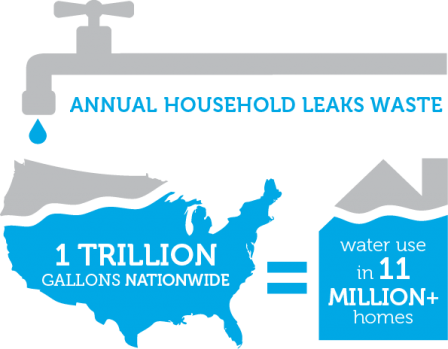
Mark your calendars, folks: March 19-25 is the EPA's tenth annual Fix a Leak Week. Household leaks can waste more than 1 TRILLION gallons of water each year. Yes, 1 TRILLION—That's a one with 12 zeros behind it (1,000,000,000,000).
Those drippy faucets and leaking toilets are more than an annoyance; they cost you lots of money, and they waste LOTS of water. So, this March, hunt down those drips! Chase those leaks!
Check, Twist, Replace!
EPA's WaterSense can help you fix those leaks:
To check for leaks in your home, you first need to determine whether you're wasting water and then identify the source of the leak. Here are some tips for finding leaks:
- Take a look at your water usage during a colder month, such as January or February.
- If a family of four exceeds 12,000 gallons per month, there are serious leaks.
- Check your water meter before and after a two-hour period when no water is being used. If the meter changes at all, you probably have a leak.
- Identify toilet leaks by placing a drop of food coloring in the toilet tank. If any color shows up in the bowl after 10 minutes, you have a leak. (Be sure to flush immediately after the experiment to avoid staining the tank.)
- Examine faucet gaskets and pipe fittings for any water on the outside of the pipe to check for surface leaks. EPA
Take the 10-Minute WaterSense Challenge!
Start by Gathering Clues:
- Check your Utility Bill
- Read your Water Meter
- Take a Toilet Test
Print and Complete this Helpful Checklist
Check out these Great Resources for KIDS!
Are you drinking enough Water this Winter?
January 31, 2018
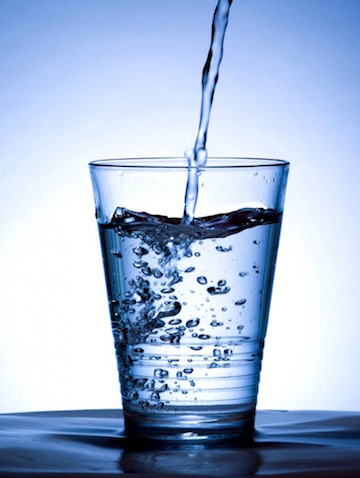
Chapped lips? Dry skin? Headaches? Nosebleeds? Dry cough? Fatigue?
These are all signs that you might not be getting enough water this winter. In the summer, when you’re hot and sweaty, your body doesn’t let you forget that you’re thirsty and NEED water. But in the winter, when you’re cold and shivering, it’s all-too-easy to neglect hydration. Your body doesn’t feel as thirsty, and it’s much harder to recognize that you haven’t been drinking much water. That’s why you have to consciously remember to drink enough water in the winter, when the air is dry and the heater is working overtime.
Drinking more water can help:
Fight Dehydration.
Staying hydrated helps you regulate your body temperature and helps your circulatory system. Proper hydration helps your muscles use their balance of fluids to prevent muscle fatigue. Also, “two large studies found a lower risk of long-term kidney problems among people who drink more water and other fluids daily.” NYT Hydration enables our bodies to flush toxins.
Basically, drinking enough water keeps your body working properly.
Keep the Winter Weight Away.
Water is wonderful for weight loss. Drinking a few glasses of water can keep you from reaching for other, less healthy beverages. Water can also help curb your hunger, making you feel more full. “When we aren’t drinking enough fluids, we don’t have the energy required to break down fat; thus, we often mistake thirst for hunger, leading us to eat more than needed.” Filter Butler
Improve your Skin.
Winter can really take a toll on your skin. From the dry, over-heated air inside to the dry, cold air outside, winter is constantly leaching moisture from your skin. We need moisture to keep our skin cells full and hydrated; dehydration causes skin to chap, crack, and peel.
Keep your skin healthy and glowing by drinking plenty of water during these cold winter months. Angel Springs
Give you Energy.
Dehydration is a major cause of fatigue. “Keeping well hydrated will ensure your bodily functions are supported and running efficiently. When you are dehydrated your body functions slow down and use up your extra energy resources, leaving you feeling tired and sluggish.” Angel Springs
Protect your Immune System.
Winter is serious breeding time for viruses, and this cold & flu season has been a rough one. “Dehydration can seriously weaken our immune systems barriers. The lack of water can dry out the mucous membranes in our lungs and sinus passages, which can reduce their resistance to infections. Keeping well hydrated during winter ensures that the barriers used to protect your body from colds and flu are fully functional and completely intact. To ensure you stay fighting fit during the winter, make sure you keep drinking water regularly and fight back against the viruses.” Angel Springs
Drinking water makes you sleep better, think better, work better, and feel better!
Read more:
Angel Springs. http://www.angelsprings.com/blog/blog/5-major-reasons-drink-water-winter/
2017: More Good News you might have missed
January 01, 2018

Bad news isn't hard to find.
Hurricanes, wildfires, mass shootings, terrorist attacks. Bad news fills the front page, and good news is often relegated to the small print. But there is plenty of good news out there! Sometimes you just have to look for it. There are positive stories, hopeful stories, inspiring stories, and they’re all around —in your town, in your neighborhood, and all across the globe.
Just take a look at a few of the stories from 2017 that you might have missed . . .
University of Iowa: Football and Kids
The University of Iowa Children’s Hospital overlooks Kinnick Stadium, where the U. of Iowa Hawkeyes play football, and the university’s football team and its hospital have long supported each other. The Hawkeye’s “Touchdown for Kids” campaign has raised money for the children’s hospital for years, and the football team welcomes a “kid captain” from the hospital to join the team on the field during home games. This fall 2017 inaugurated a new tradition for the Hawkeyes fans. With the beginning of the football season, Hawkeyes fans made sure to let the children and families at the hospital know that they were supporting them as well as the team. After the first quarter of the game, thousands of fans turned toward the hospital and waved to the families watching from the windows of the hospital. CBS Sports
Giant Pandas are making a comeback
The number of giant pandas in the wild has been slowly but steadily increasing in recent years, and the panda has been reclassified as a “vulnerable” rather than an “endangered” species. The giant pandas are still at risk, however, and more conservation efforts will be needed to keep these incredible creatures off the endangered list. NBC News
Two more of the earth’s most magnificent species are making comebacks as well: the snow leopard and the tiger.
Speaking of comebacks, honeybee populations are on the rise

“Just over a decade ago, beekeepers began reporting disturbing declines in honeybee populations. Bees, they said, were leaving the hive and not returning. The phenomenon, now known as colony collapse disorder, is alarming not only because of the central role bees play in plant life around the world—and thus most other life—but also because no one knew why the decline was happening or how to stop it. “ Newsweek
However, new data are encouraging. In August 2017, the US Dept. of Agriculture released a report that said that honeybee populations are on the rise. There are an estimated 2.89 million bee colonies across the US, an increase of 3 percent in the last year.
Food For Fines
Lexington, Kentucky has found a creative and generous way to give back during the holidays. For the past four years, during the holiday season, the Lexington Parking Authority has accepted canned food donations in exchange for parking ticket fines. In its first three years, the city’s “Food for Fines” program collected 24,500 cans of food for the God’s Pantry Food Bank, and hopefully the 2017 collection was their largest yet. Food for Fines —what a great idea! Lexington, KY
Veteran Homelessness down 40% since 2011
Great strides have been made in the effort to fight homelessness in our veteran population. The percentage of homeless veterans is down 40% since 2011, and many communities have “effectively ended” homelessness among their veteran populations. Time
According to Veterans Affairs, three states and 57 communities across the US have announced an end to veteran homelessness. Veterans Affairs
“We know how to end homelessness among Veterans. Since 2014, more than 880 mayors, governors, and other state and local officials have answered the call of the Mayors Challenge to End Veteran Homelessness, pledging to do all they can to ensure their communities succeed. And it’s working.” US Interagency Council on Homelessness
As former HUD secretary Julian Castro said, ““We have an absolute duty to ensure those who’ve worn our nation’s uniform have a place to call home. While we’ve made remarkable progress toward ending veteran homelessness, we still have work to do to make certain we answer the call of our veterans just as they answered the call of our nation.” Good News Network
Ebola vaccine results —100% effective
A vaccine has been developed to effectively combat the deadly Ebola virus, and results have been remarkable. The West African outbreak of Ebola virus disease began in December 2013, infecting nearly 29,000 people and killing about one third of those. It was brought to an end in June 2016 through the hard work of local groups working with international teams of medical staff. Newsweek. Almost a year later, results from an Ebola vaccine, rVSV-ZEBOV, seem to show 100% effectiveness against the virus. In addition, the National Institutes of Health reported in October 2017 that final data from a large clinical trial of this vaccine showed that it had been safe and effective, providing immunity against Ebola for at least one year from initial vaccination.
National Institutes of Health
Looking for more stories like this?
NBC's Today Show has a website called Share Kindness, devoted to stories of people sharing kindness with one another. Check it out!
Share Kindness
----------------------------------------------
'tis the season
December 01, 2017
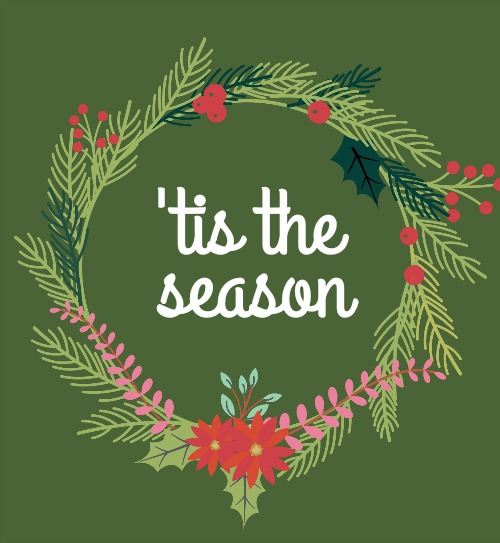 It IS the season. For sharing. For caring. For giving — of your time, your resources, your abilities. For sharing your table with family, friends, neighbors. This holiday season, as we reflect on the gifts we’ve been given, may we be eager to give, and eager to bestow acts of kindness on our loved ones, or even on strangers in need.
It IS the season. For sharing. For caring. For giving — of your time, your resources, your abilities. For sharing your table with family, friends, neighbors. This holiday season, as we reflect on the gifts we’ve been given, may we be eager to give, and eager to bestow acts of kindness on our loved ones, or even on strangers in need.
Ruth Ebenstein, an American-Israeli writer, relates a story of a Christmas Eve in 1944, a Christmas Eve that her grandmother, uncle, and mother spent in a concentration camp in Austria, on the verge of starvation. Ruth’s mother, who was only three years old, could not even leave the bed because she had no shoes to wear. Late that Christmas Eve night, Ruth’s uncle Gyuri, a young boy of 12 at the time, snuck out of the concentration camp and walked four miles to the nearest town. When he arrived in Deutsch-Wagram, he came upon a house and, knocking at the door, he begged the sleepy woman who answered for some food for his family. She whispered, “Come back tomorrow.” When Gyuri returned on Christmas day, the smiling Austrian lady gave him food, clothing, shoes, and warm woolen socks that she had knitted for his young sister.
When Gyuri returned to the camp, the entire barracks enjoyed the feast provided by the kind woman from Deutsch-Wagram. And when the camp was liberated by the Russians in 1945, Ruth’s mother wore those same shoes and socks to make the 28-mile trek to Bratislava, to freedom.
After relating this story, Ruth adds a thank you to the woman whose unexpected kindness shone a bright light in a dark place:
“Thank you for knitting with your hands the pair of socks that warmed my mom's little feet and skinny legs. Thank you for finding those shoes and clothing and giving them to a stranger. Thank you for sharing your bread during wartime. In the despair of a battered land, cold and snowy, when many hearts were closed and evil reigned and death was more likely than life, especially for Jews, you gave them light. You gave them kindheartedness. You gave them a measure of sustenance that I can only imagine.” USA Today
Martin Klapper, from Longmont, Colorado, relates a story about one holiday season during the Great Depression, when Martin was 10 years old. A few days before Christmas 1935, Martin looked out the window to see his father sitting on the stoop outside with tears in his eyes. When the mailman came up the steps to ask his father what was wrong, his father answered that he had used up his food vouchers and that the rent was past due. “Ike, how much do you need?” the mailman asked. When Martin’s father answered that he needed $33 for rent, the mailman took $50 from his wallet and gave it to Ike. When Ike told him that he wasn’t sure when he’d be able to pay him back, the mailman said it was fine if he wasn’t able to pay him back. Noticing Martin at the window, the mailman said to Ike, “Isaac, things will not be this way forever. If you or your son will remember this day, there will be times in the future when someone needs your help. Help them within your means and tell them what happened this day. This will be my payback. Merry Christmas and Happy Chanukah.”
Martin ends his story with this: “As long as he lived, my father helped others when he could, and I’ve done my best to do my part in paying his generosity back.” Reader’s Digest
Glen Gillette, from Las Vegas, Nevada, relates a story about Christmas 1958, his first Christmas as a high-school teacher in Nevada. On December 22, he was headed home to Idaho to spend Christmas with his parents when his radiator hose broke outside Fillmore, Utah. When the car was towed to the Fillmore Chevron station, the owner, Dan Brinkerhoff, discovered that “the engine had become so hot that it had warped the head.” Dan made some calls and found a replacement part in a nearby wrecking yard. After Glen took a bus to the wrecking yard, bought the part, and returned to Fillmore, it was nighttime and the station was closed. However, Dan went right to work, laboring over the car for hours while Glen slept in the backseat. As Glen concludes his story, “Finally, he woke me and announced I was ready to go. When I went to settle up, he would not take a dime for anything he had done. I got to spend the holidays with my parents, and I shall forever remember Dan for the wonderful thing he did for me.” Reader’s Digest
This holiday season, remember this: whether you are a mailman or a mother or a mechanic, your small act of kindness can make a world of difference.
Sources:
Reader’s Digest, https://www.rd.com/true-stories/inspiring/christmas-kindness-stories/
November 11 — Honoring those who have served.
November 01, 2017

On November 11 of 1918, the 11th hour of the 11th day of the 11thmonth, an armistice went into effect, a cessation of hostilities between the Allied Nations and Germany, ending the “war to end all wars.” The official end of World War I would not be declared for seven more months, at the signing of the Treaty of Versailles, but the end actually came on that November day, when the truce was signed, the opposing forces laid down their weapons, and the war known as the “Great War” was over. Now, all over the world, people set aside this day,November 11, to honor those who have served their countries well —bravely and selflessly.
Armistice Day, Remembrance Day, Veterans Day. A day to honor all those who have served.
How can you express your appreciation to those who have served? Click HERE to read about 8 great ways. www.military.com



